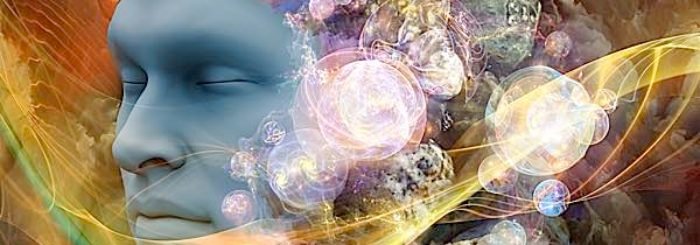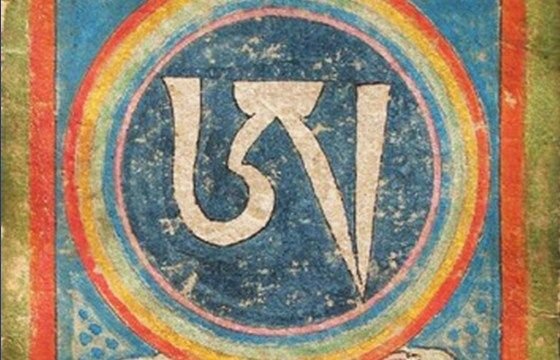
How to Dream Your Life into Being

The paths to awakening and self-realisation are many, long and winding. From the dawn of time, we have built practices and philosophies around the goal to transcend our mind-constructed limitations, our illusions of self and reality, and the layers of social conditioning. Yogic systems, shamanic practices and the multitude of healing modalities sprouting from various cultures through the eons, attest to this basic human endeavour. All these practices seek to hack the mind, body and energetic systems through different angles–breathing, postures, meditation, sound, and more.
Yet one of the most ingenious, and least known, of these approaches to hacking our mind-body-energy systems, is through dreams. Imagine being able to change your life, your beliefs, and your relationship with the world while you sleep. How about spiritual growth and expansion of consciousness? There is no need for a mat, a special exercise or a guru. No need for a time or place. You just need to sleep and dream. This, and much more, is what the practice of Tibetan dream yoga has been allowing its practitioners to achieve for millennia.
What Dreams May Come

Dreams are one of the least understood daily (or nightly) occurrences in human life. Everyone dreams every night, even if you might not remember it. Throughout an entire average life span of 70 years, a typical human spends almost 6 years in R.E.M sleep, that is, dreaming. Think about that.
Change your life while you sleepImagine being able to change your life, your beliefs, and your relationship while you sleep.
Yet, no matter what an intimate part of our daily life dreams are, there is very little recognition of their importance and most of all how they affect us in creating our reality, whether we are conscious of it or not. In the modern world, we tend to trivialise dreams and relegate them to the sphere of the curious, the weird or just as an entertaining theme for a light conversation. We tend to see dreams as just a collage of bizarre images and story lines our subconscious throws at us while we sleep.
Clearly, as any explorer of consciousness knows, there is much more to dreams. For the Bon tradition, which predates Buddhism in Tibet, dreams were regarded as particularly important and an indispensable tool of consciousness expansion. Dreams are not just a regurgitation of our subconscious urges and inner workings but a powerful space through which we communicate directly with our subconscious and higher consciousness to understand our inner life more fully and, more importantly, to change it.
The basic tenet of Tibetan dream yoga is that we can change our waking life by changing our dream life. More accurately, we can become more awake and lucid in our waking life by becoming more lucid and awake in our dreams. Why? This is because, according to Tibetan Buddhism, waking life is a dream state just as much as dreams at night or the period between life and death. All these are what they refer to as the Bardo states–the dreamy in-between states of consciousness.
Waking life is a dream stateWaking life is a dream state just as much as dreams at night.
Life is but a Dream

So according to Tibetan dream yoga, our waking life is nothing but a dream, even though our sense perception and beliefs strongly tell us otherwise. This is part of the great illusion we need to transcend and awaken from. This is when we are still unconscious within the dream. So the dream yogis learn to become and stay awake in their dreams at night first. This is what in modern day terms we call lucid dreaming or becoming conscious that you are dreaming while still inside the dream space.
Lucid dreaming has become a popular subject of enquiry that caught the interest and imagination of many people from different walks of life, even those with no special interest in spirituality or personal growth. Many people have lucid dreams occasionally or regularly–induced or spontaneously. Some practice to become lucid in their dreams as a way to explore and act out their fantasies without limits. If you ever experienced a lucid dream, you know how real and powerful it all feels. You can create any experience, any situation. There is a euphoric feeling that comes with experiencing something so vividly and being able to control and change a lot of it. You can become water or a bird, change sex, have sex in multiple bodies at once, become an atom, fly through galaxies and beyond, and all this in a highly intense and vivid way that waking reality cannot start to match. For many lucid dreamers, their nightly explorations remain, for the biggest part, in the realm of fantasy or self-entertainment.
There is nothing wrong with this but this is not what Tibetan dream yoga is about. If you stop at this stage, you would really be missing an enormous opportunity to use that space in a far more interesting way than fantasy–awakening yourself from the dream of life.
Lucid dreaming is becoming conscious that you are dreaming while still inside the dream. The ultimate goal of dream yoga is to be fully awake when you die, which is one of the Bardo states. To be fully awake when you die, you need to be fully awake when you live and one of the cleverest ways to stay awake when you live is to start becoming awake in your dreams. So in Tibetan dream yoga, one starts to become first acquainted with the idea of life being a dream, an illusion. You start keeping this in your mind when you are carrying out your daily business at home, at work, with friends or wherever. You reinforce the idea that what you perceive or feel or think are just parts of a dream state. This will finally pierce through your consciousness and together with meditative practice to still the mind, and being more attentive to your dreams, finally a shift in consciousness happens in which your dreams start changing. One would start having short episodes of lucidity, until after some time it becomes a regular thing.
The Three States of Dreaming

According to Tibetan Buddhism, there are mainly three types of dreams. First are the dreams of Samsara or karmic dreams. These are the most common ones; the ones most people usually have at night. These dreams are born out of karmic traces being processed in the subconscious. They are partly the processing of what you have experienced during the day or recent past–your emotional states, fear, excitement, etc.
They are karmic in the sense that they are based on unconscious patterns of behaviour and are being projected in the form of dreams with its beautiful metaphors and symbols. There is still a lot to learn from these dreams of course and if you become lucid in one of these dreams you can change it, create something or explore your subconscious by asking a dream character or the dream itself for knowledge. You can also learn about your blocks, your gifts or whatever it is that will give you more insight about yourself. You can also explore the trans-personal realm, or what Carl Jung called the collective unconscious, for archetypal patterns, etched in the store house of mankind’s collective psyche.
The three types of dreamsThe three types of dreams are karmic dreams, clarity dreams and clear light dreams.
The second type of dreams are the dream of clarity. When you have a dream of clarity, you know it. They are qualitatively different. There is a different feel and energy to it. Usually these dreams will leave a big impression on you. You will find them energising, recollect them more easily and make you ponder about them for some time. The dreams of clarity are messages from your higher consciousness rather than your subconscious. Usually they offer guidance or insights that can affect a very important aspect of your life. They can also be precognitive and show you something important about to happen, perhaps a danger or life-changing opportunity.
The third type of dream is the dream of clear light. These are rare and it is said it is what finally is achieved after years of practicing dream yoga. These types of dream are not dreams in any real sense. In fact, this is when the dreamer stops dreaming because he has awakened. The dreams of clear light transcend karma and experience. They are at one with pure consciousness.
The Path of the Dream Yogi
So what do Tibetan dream yogis do in their nightly practices? They first practice to become lucid in their dreams on a regular basis. This is achieved through some forms of meditative practice for improving concentration and mindfulness. One of these practices is called Zhine and there are three types–forceful zhine, natural zhine and ultimate zhine. The forceful zhine is when you keep focusing the mind on an object. Traditionally dream yogis focus their gaze on the Tibetan letter A but any object would do. Natural and ultimate zhine is when stillness of the mind and focus are achieved naturally, without ‘target practice’.
The dream yoga pathTibetan dream yogis practice meditation, breathing exercises and posture alignment.
Why is concentration so important? Any spontaneous or even experienced lucid dreamer will tell you that the most difficult thing in lucid dreams is stability. Once you get distracted or excited by a thought, the dreams dissolves, or more commonly, you lose lucidity.
In fact, meditative and visualisation practice is also done exactly before sleeping so that one enters sleep with a still mind. The other thing has to do with energy, or prana (Lung in Tibetan), and posture. Prana is extremely important in dreaming and for achieving lucidity. The Tibetan dream yogis have understood that the way that energy flows through our channels affects the way we dream, how much we recollect of it and whether we achieve lucidity or not.
I will not go into the detail of the energy maps of the body according to Tibetan Buddhism, for it is too long, but it is worth mentioning that breathing practices are used very often to clear the energies. One common practice is the nine breaths of purification. Posture also affects dreams and here is a curious fact–notice what side you are sleeping on when you wake up from a bad dream. For men, it will most of the time be the left side, while the right side for women. Once again I will not go in the details but it has to do with the three main energy channels in the body according to Tibetan dream yoga–the left, central and right channel. The central channel is neutral when open. It is conducive to ‘Rigpa’ which is a form of transcendental state. For men, the right channel is associated with negative emotional states while the left is positive (it is the other way round for women). So when men sleep on their left side, the put pressure on the left channel (positive) and the energy flows more through the right (negative) and vice versa. Through meditation and breathing exercises, the central channel is more open which enhances the chances of lucid dreaming.
The goal of dream yogaThe goal of practising dream yoga is to dream yourself awake, quite literally. So going back to the question: “What do dream yogis do in their lucid dreams?” In the beginning, they play around with duality and form. For example, they make themselves large as a planet, or small as an atom. They experience extreme pleasure or pain, change shapes, multiply, etc. This makes the mind ‘pliable’ and less fixed into the conditioning of what is real or not, according to waking consciousness. It also acquaints one with the nature of consciousness and that it is not bound by physical laws or perception. From there on it’s using that lucid dream state for spiritual practice and enquiry. For example, doing meditation during a lucid dream is more effective than in a normal waking state by at least a tenfold. Actually, whatever you do in that state is more vivid, real and powerful and it has the effect of etching itself into your subconscious. So for instance, some experienced lucid dreamers use it for practicing an art or a sport.
Another thing that dream yogis do in a lucid dream state is continually healing the mind and clearing the subconscious from debris or blocks. This is highly valuable in any pathwork. Imagine being able to remove your limiting or self-sabotaging beliefs while you sleep and therefore wake up to a better, fuller you each morning.
Ultimately, the goal of practising dream yoga is to dream yourself awake, quite literally. Some ancient traditions and folk wisdom actually tell us that we dream our life into being and that creation was born out of a dream. Sometimes the truth lies closer to myth than we dare think.
Great article.
In Taoist Medicine, too much lucid dreaming can cause health problems, and is generally avoided.
I’ve always wondered about this, given the cross-cultural influences between Tibet, Buddhism, and China.
Have you come across anything about what Tibetan physicians considered about these practices? Did they take precautionary measures to ensure sleep was still restful?
The TCM view is that excessive ‘wandering of the soul’ will not allow deep integration and regeneration that sleep provides. It will deplete xue (Blood, yin) and lead to a number of different physiological problems.
Would love to know more about this.
😊🙏🏽☯️
Thanks for your comment. From what I know, the argument that Lucid dreams interfere with regenerative or restful sleep has been rejected many times. One reason is because just by practising/doing lucid dreaming will not change the sleep cycles or patterns (for example you will not have more REM sleep and less dreamless sleep phases than one would naturally have at night). You will still have the same frequency and duration of REM sleep in one night, the only difference is that you would be conscious in some of those phases instead of unconscious and this does not really affect restfulness or integration because these mostly happen in the other parts of the sleep cycle. I don't know what Taoist medicine says about this. Perhaps you have a link to it?
Hi! I am a robot. I just upvoted you! I found similar content that readers might be interested in:
http://www.riseearth.com/2017/10/dream-yourself-awake-little-known.html
I am the author of the original article
This wonderful post has received a bellyrub 1.23 % upvote from @bellyrub thanks to this cool cat: @soulhiker. My pops @zeartul is one of your top steemit witness, if you like my bellyrubs please go vote for him, if you love what he is doing vote for this comment as well.
Congratulations! This post has been upvoted from the communal account, @minnowsupport, by soulhiker from the Minnow Support Project. It's a witness project run by aggroed, ausbitbank, teamsteem, theprophet0, someguy123, neoxian, followbtcnews/crimsonclad, and netuoso. The goal is to help Steemit grow by supporting Minnows and creating a social network. Please find us in the Peace, Abundance, and Liberty Network (PALnet) Discord Channel. It's a completely public and open space to all members of the Steemit community who voluntarily choose to be there.
This post has received a 1.27 % upvote from @booster thanks to: @soulhiker.